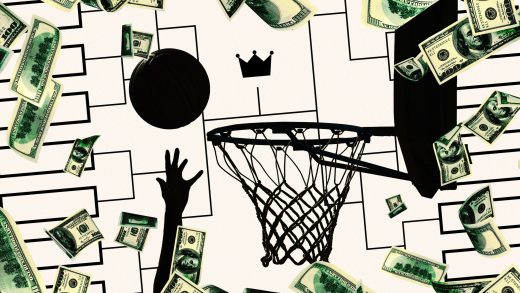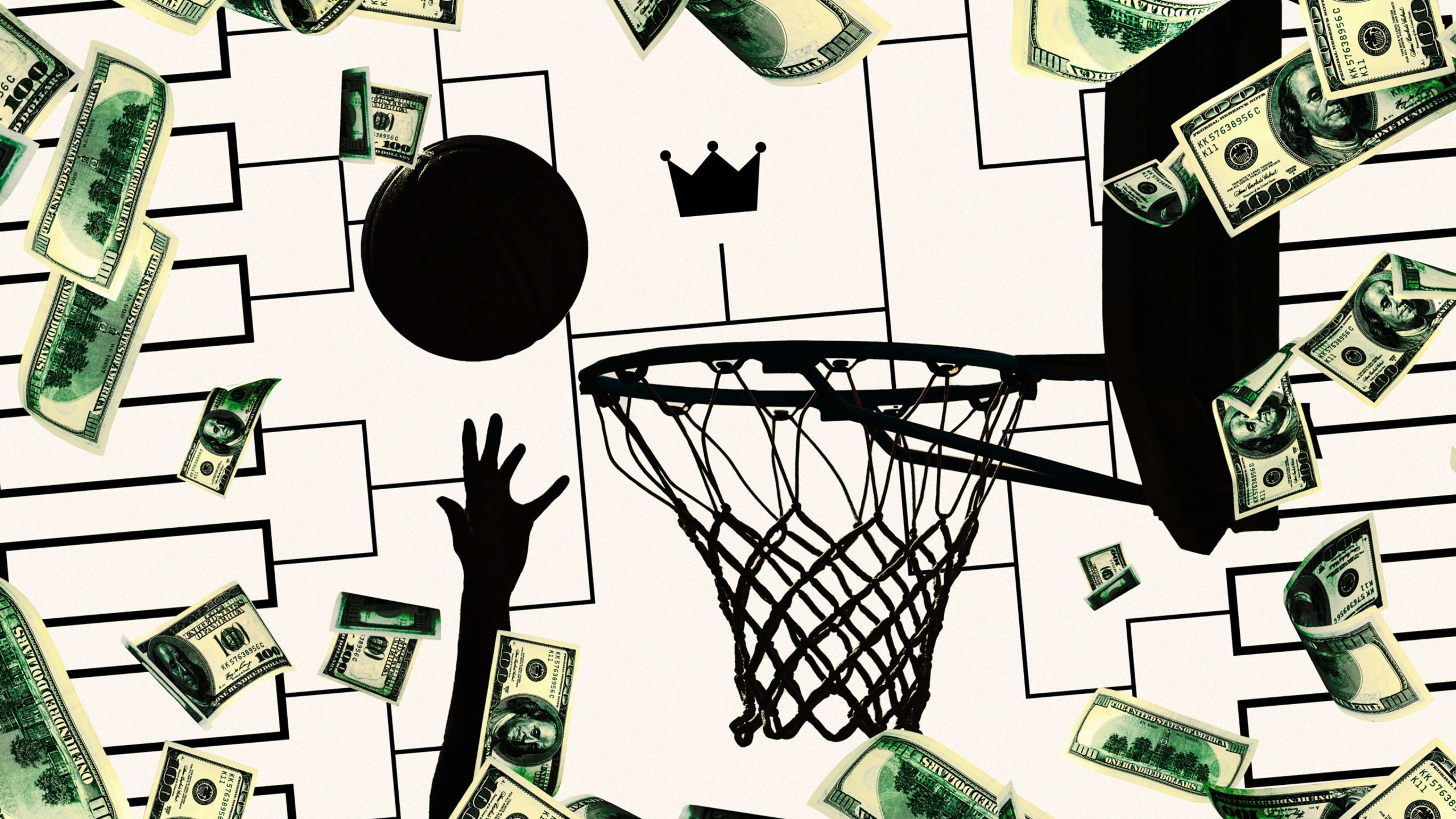Meet the guy who made a run at Warren Buffett’s billion dollar March Madness Bracket prize
Meet the guy who made a run at Warren Buffett’s billion-dollar March Madness Bracket prize
Ten years ago, the Oracle of Omaha gave college basketball fans a historic offer that came only once: $1 billion in exchange for the all-but-impossible perfect bracket. Brad Binder nailed the first 36 games.
Brad Binder’s X page is sporadic and largely desolate. The 34-year-old physical therapist from Mundelein, Illinois, posts occasionally, with a heavy bias towards Chicago-area sports teams (preference goes to the Cubs and Fighting Illini). A 2015 tweet campaigning for Jimmy Butler—Bulls version—for MVP is unearthed after a brief scroll down of his feed.
Pinned at the top of his page is a March 2014 post that is both tongue-in-cheek and correlated with his brief brush with fame, Warren Buffett, and a billion dollars.
“Hey remember that time Mercer beat Duke?! That was pretty cool,” he wrote the day after that colossal upset back in 2014.
Ten years ago, foreseeing such March Madness Cinderellas had potential far beyond office pool glory and modest three-figure cash prizes. Try $1 billion. That was the lucrative figure that Dan Gilbert from Quicken Loans (now Rocket Companies) and their insurer Berkshire Hathaway Inc. with its super billionaire Chair, Buffett, dangled to sports fans that year in exchange for 63 correct picks—aka a perfect March Madness bracket. A feat never officially achieved.
“I had seen advertisements for Warren Buffett’s billion [dollar challenge],” recalls Binder. A self-described “math and science guy,” Binder was skeptical of anybody’s chances, let alone his. “The odds of predicting all 63 games without an error are so improbable, I don’t think we will ever see one,” he adds.
The longtime benchmark odds for an undefeated bracket are, of course, 9.2 quintillion-to-one. This makes it less of a calculated risk for Buffett—whose estimated net worth in 2014 was reportedly $53 billion—and more of a semi-cruel party gag.
“I remember thinking that it’s a pretty safe bet for Buffett because nobody would get it,” says longtime ESPN college basketball analyst Jay Bilas. “So, it was pretty funny and interesting.”
The contest rules were simple: one entry per household and registration was free. The winner of the jackpot would have the option of 40 annual installments of $25 million, or a single lump sum of $500 million. If there was no perfect bracket, the top 20 entries would still each receive $100,000. Bilas remembers the NCAA taking issue with Gilbert (also the owner of the Cleveland Cavaliers) and Buffett’s grandiose promotion.
“They were concerned that the offer would lead to game fixing,” recalls Bilas, who had a conversation with an NCAA official about the concern when the contest was announced. “And, I started laughing and thought they were kidding. I said, ‘That’s a practical impossibility, you’d have to fix, what, 67 games? Who would take that risk?’”
Between 60 million and 100 million March Madness brackets are filled out each year, according to the NCAA. That includes college basketball fanatics, non-sports fans partaking in office pools, and even former president Barack Obama. Selection strategies range from conducting in-depth matchup analysis to choosing based on the school’s mascot.
Binder’s plan that year was simply to submit a bracket on time. A recent graduate of the University of Illinois at the time, he was running late to work and took five minutes to complete his bracket the morning of the deadline. He remembers changing the outcome of the Ohio State and Dayton match at the last minute. He chose Michigan State to be the team cutting down the nets.
Going with his gut mixed with a reasonable amount of sports knowledge helped fuel Binder’s run at a billion. He correctly chose the winners of the 2014 tournament’s first 36 games, including selecting several upsets: the 14th-seeded Mercer over the third-seeded Duke; and the 11th-seeded Dayton over the sixth-seeded Ohio State. After 33 games, Binder’s aptly titled “Brad’s Breathtaking Bracket” (courtesy of Yahoo’s alliteration-loving autogenerator) was the sole remaining undefeated bracket in the United States, prompting media appearances on ABC News, ESPN, and CNN.
A local Chicago news outlet, he says, “somehow got my address and phone number and somebody showed up at my door” seeking an on-camera interview. “It was overwhelming for me as a 23-year-old at the time,” he admits now.
Dayton stunning Syracuse in the second round ended Binder’s own one shining moment. The storyline of the tournament shifted to the court, where the seventh-seeded UConn Huskies, led by Shabazz Napier and coach Kevin Ollie, captured the 2014 national championship.
“I remember a weight being lifted off my shoulders when it was over,” says Binder, now a new father. “I enjoyed my 15 minutes of fame, but it was good getting back to normal life.”
A decade later, the billion-dollar bracket was a one-time gimmick that neither Buffett, Gilbert, nor anyone else has offered since. Calls and emails to Berkshire Hathaway went unanswered. But Binder has theories.
“After all, the true winner of that tournament was Warren Buffett and Berkshire Hathaway, who ended up collecting valuable information and data from all who entered,” says Binder, “knowing very well they would not have to give out a penny—let alone a billion dollars—in the end.”
Bilas (view his 2024 bracket here) does not speculate, nor seemingly care, what Buffett’s intentions for the billion-dollar stunt were. He doesn’t wonder if the 10-figure purse will ever be duplicated (“Who would put up that kind of money?” he asked). He’s also never pondered whether a perfect bracket—the closest a verified bracket was 49 correct picks, achieved by an Ohio man in 2019—will occur in our lifetime.
“I mean, who cares?” Bilas asks. “It’s like going to a carnival and trying to figure out the ring toss and all you get at the end of it is a stuffed animal.”
Except that, for one year, the prize was a billion dollars.
(21)



